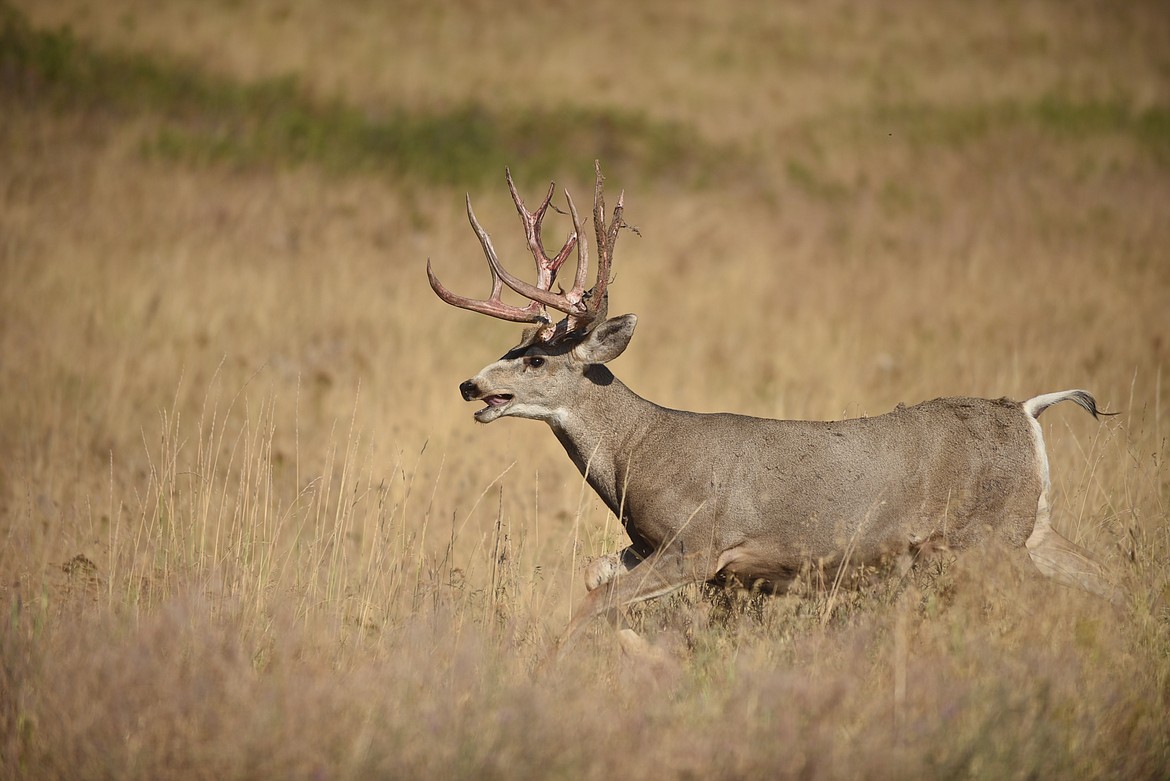Northwest Montana check stations to collect CWD samples
A combination of factors have experts believing the general deer and elk season will be a good one in Northwest Montana.
Snow and cold temperatures are expected to greet hunters on opening day Saturday as they begin their respective quests to put meat on the table.
“With the mild winter and a good spring, we anticipate a good hunting season this fall,” said Dillon Tabish, the Information Officer for Montana Fish, Wildlife and Parks Region 1.
A change for the 2020 season will have traditional game check stations being replaced with stations to help test for Chronic Wasting Disease.
Historically, FWP regional staff and volunteers operated five mandatory big game check stations across the region on weekends during hunting season. This year, FWP is replacing those check stations in Northwest Montana with CWD sampling stations where hunters can voluntarily stop for assistance collecting samples to submit for testing. Sample submission is voluntary throughout Montana.
Here is a list of CWD sampling stations in Northwest Montana (Region 1) during the general hunting season:
• FWP Region 1 Office, Kalispell: Monday-Friday, 8 a.m. to 5 p.m.
• Libby: Montana Department of Transportation shop on U.S. 2 from 11 a.m. to dusk on Saturday, Sunday and Monday. (Canoe Gulch check station will be closed)
• U.S. 2 west of Kalispell: 11 a.m. to dusk, Saturday and Sunday.
• Swan: Montana 83 north of Swan Lake: 11 a.m. to dusk, Saturday and Sunday.
• Thompson Falls: Montana 200 on the west end of Thompson Falls from 11 a.m. to dusk, Saturday, Sunday and Monday.
• Olney: U.S. 93: 11 a.m. to dusk, Saturday and Sunday.
• Eureka: Lincoln County Fairgrounds, 11 a.m. to dusk, on Mondays.
Certain areas of the state are designated as Priority Surveillance Areas, including most of Northwest Montana, where FWP is making a concerted effort to gather more samples. In those specific areas, hunters are encouraged to voluntarily submit a sample from their animal.
FWP will cover the cost of testing hunter-harvested animals for CWD. Results will be posted online at fwp.mt.gov/cwd as in past years, and hunters will be notified directly if they have a positive animal.
There are no carcass transport restrictions within the state. A carcass may be moved anywhere in the state regardless of where it was harvested as long as the carcass parts are disposed of in a landfill after butchering/processing.
Carcass parts, such as brain, eyes, spleen, lymph glands and spinal cord material, should be bagged and disposed of in a landfill or may be left at the kill site. Dumping carcasses is illegal, unethical and can spread diseases, including chronic wasting disease.
Hunters with a general elk license are reminded bull elk must have brow tines to be legal game.
For those chasing white-tailed deer in the Libby CWD zone, hunters may buy an either-sex B license.
According to Tabish, the state sold 600 licenses in the zone in 2019. Currently, the state has sold more than 800 B licenses in the zone. It includes Hunter Districts 103 and 104.
Hunters with a general deer license may harvest either a white-tailed buck or a doe in the first week, Oct. 24-30, in Hunter Districts 100-104, 109-110, 120 and 170.
Hunters seeking other game such as wolves, black bears and mountain lions must have specific permits and are advised to check the hunting regulations books for each species.
One change for wolf licenses is the first tag is $12 and additional licenses cost $10 each. Hunters may harvest up to five wolves in a season.
The fall general hunting season for deer, elk and black bears ends Sunday, Nov. 29.
The fall mountain lion season begins Monday, Oct. 26 and ends Tuesday, Dec. 1. Hunters buying a license after Aug. 31 may not use it until five days after purchase.


